Russian ambassador blames West for stalled Iran relations
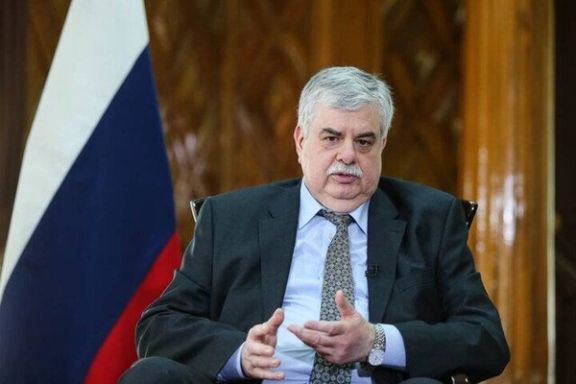
Russia's ambassador to Iran, Alexey Dedov says that it is not Iran but Western countries that are unwilling to discuss normalizing relations.

Russia's ambassador to Iran, Alexey Dedov says that it is not Iran but Western countries that are unwilling to discuss normalizing relations.
In an interview with Russian media outlet RIA Novosti on Saturday, Dedov pointed to the recent IAEA Board of Governors resolution censuring Iran as evidence of the West to reach an agreement with Iran.
"Their latest steps - the adoption of an anti-Iranian statement at a session of the IAEA Board of Governors - show that the West is not ready to seek a compromise with Iran... It is not Iran, it is the West that is not ready for a serious conversation with Iran on the issue of normalizing relations," Dedov said.
Last month the UN nuclear watchdog's 35-nation IAEA Board of Governors passed a resolution calling on Iran to step up cooperation with the watchdog and reverse its recent barring of inspectors despite concerns Tehran would respond with atomic escalation.
Iran continues to enrich uranium in what is seen as a program that could only be meant to produce nuclear weapons. Tehran also continues to provide assistance to a host of armed proxy groups throughout the Middle East.
Dedov further highlighted that following the election of Masoud Pezeshkian as Iran's new president, the majority of world leaders, including those from Russia, extended their congratulations. However, Iran did not receive any similar acknowledgments from Western leaders.
On June 7, Nabila Massrali, the spokesperson for Foreign Affairs and Security Policy of the European Union, extended congratulations to Pezeshkian, saying the EU stands ready to engage with his administration.
On Monday, White House National Security Council spokesperson John Kirby also affirmed that Pezeshkian’s election will not change the US negotiating position, signaling that the Biden administration is not ready to resume nuclear talks with Iran under the new president.
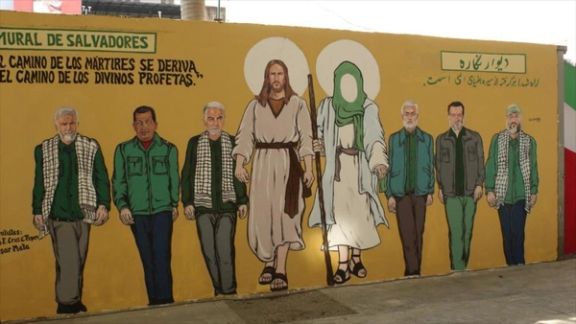
Since Javier Milei took office as Argentina's president in December 2023, there has been increased focus on national security, especially regarding potential threats from Iran through its alliances with Bolivia and Venezuela.
Argentina has a complex history with Iran, especially following the 1992 Israeli embassy and the 1994 AMIA bombing in Buenos Aires, which has left a legacy of vigilance against Iranian activities in the region.
Iran has significantly strengthened its ties with Bolivia and Venezuela over recent years. In Bolivia, the relationship deepened during Evo Morales' presidency and has continued under President Luis Arce.
This cooperation has included multiple bilateral agreements, particularly in defense and security, resulting in Iran providing drones and other military equipment to Bolivia under the guise of commercial exchanges. These moves are seen as a strategic effort by Iran to establish a foothold in Latin America, potentially facilitating the movement of its operatives.
Threat to Argentina
The Argentine government has expressed concerns about the potential introduction of Iranian agents into the country via Bolivia and Venezuela. Iran has been using these countries as bases to conduct activities linked to terrorism and drug trafficking. This includes the alleged provision of Bolivian passports to Iranians with fake identities, enabling them to operate across Latin America. Such activities are primarily facilitated through Iran's Quds Force and the Ministry of Intelligence and Security.
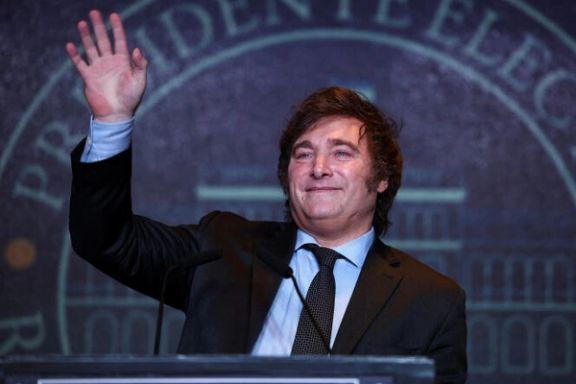
Bolivia and Iran, under President Luis Arce, signed a formal defense pact in July 2023, extending the 2012 La Paz bilateral agreement signed by Evo Morales and Mahmoud Ahmadinejad, which included security cooperation. The deal was said to include an Iranian pledge to provide Bolivia with drones for narcotics enforcement. The terms, however, were secretive, prompting both Argentina and the Bolivian opposition to demand clarity on the details.
This cooperation has included multiple bilateral agreements, particularly in defense and security under the guise of commercial exchanges. These moves are viewed as a strategic effort by Iran to expand its foothold in Latin America, potentially facilitating the movement of its operatives.
Argentina has stepped up the breadth of its security, particularly at the border to the north, with Bolivia. The government has heightened surveillance and border controls to prevent the infiltration of Iranian agents. This move follows the broader strategy of ensuring that the country's security apparatus is robust against any covert operations that might be directed from Iran through its Latin American allies.
“We have Hezbollah cells on the Triple Border. But it is on the Bolivian border where we see the highest level of alert and security in the country, because there has been a memorandum signed by Bolivia and Iran,” Patricia Bullrich, Argentina's minister of security said in an interview with La Nación. “That pact allowed the presence of Iranian members of the Quds forces, which are combatant forces and are integrated into Iran’s armed branches, in the territory. We are investigating whether there are people who do not speak Spanish yet have Bolivian passports.” she added.
The country has formally requested from Interpol to arrest Iran’s interior minister, Ahmad Vahidi, for his alleged role in the attack that claimed 85 lives. Argentina has taken a significant step in its pursuit of justice for the victims of the 1992 Israeli embassy and 1994 bombing of AMIA - a Jewish community center in Buenos Aires.
Argentina draws the line in the sand
Several days before Tehran’s April 13th drone and missile attack on Israel, Javier Milei’s administration announced that it has placed its borders on alert considering the likely infiltration of Iranian and Hezbollah operatives into Argentina. There have long been concerns about a Hezbollah presence in the Triborder Region where Argentina, Brazil and Paraguay meet. But Interior Minister Patricia Bullrich’s announcement this time emphasized an apparent threat from Bolivia.

Then, following Tehran’s drone and missile attack on Israel, a statement condemning the attack was issued by Milei’s press team that read: “The office of President Javier Milei expresses its solidarity and unwavering commitment to the State of Israel following the attacks by the Islamic Republic of Iran.” It adds that the new administration in Argentina has adopted a new foreign policy based on the “defense of Western values” such as “life, freedom, and private property” and “strongly supports the State of Israel in the defense of its sovereignty, especially against regimes that promote terror and seek to destroy western civilization.”
According to recent reports, Venezuelan President Nicolas Maduro has sent armored carriers, light tanks, missile-equipped patrol boats, and military troops to the Guyanese border, in the Essequibo region, controlled by Guyana, in an apparent threat to take two-thirds of the smaller neighboring country's national territory by force.
An understanding between Venezuela’s Maduro and Guyanese President Irfaan Ali was signed in December of 2023, which rebuked the use of force.
Now, following recent overflights by US F/A-18 Super Hornet fighter jets over Guyana, Venezuela has mobilized troops towards the disputed border Essequibo region and Venezuela’s threats to invade Guyana has escalated. While an initial analysis would focus on local implications, the projection of this conflict on the global stage reveals a clash between major powers; with the United States and its allies on one side, and an axis composed of Russia, China, and Iran on the other.
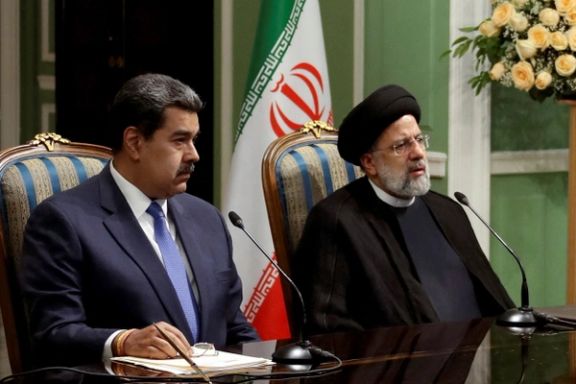
According to the US Energy Information Administration, Guyana’s most recent estimate of recoverable oil and natural gas resources is more than 11 billion oil-equivalent barrels, and developers are still exploring the country’s offshore waters. According to Natural Resources Minister Vickram Bharrat, Guyana also boasts an impressive reserve of lithium and copper, gold, diamonds and other rare minerals.
Venezuela's Allies
Russia and China’s investments in Venezuela aside, the Islamic regime’s alliances and agreements with the South American dictatorship, especially in the military and energy fields, will see this conflict as an opportunity to strengthen its position against the United States.
Latin American Affairs expert, Mookie Tenembaum told Iran International: “If these tensions escalate into an armed conflict, the confrontation will become a global flashpoint where local interests clash, and global superpower strategies are involved.”
Tenembaum added that such a scenario will lead to an indirect confrontation between the US-led bloc and the Russia-China-Iran axis, each seeking to expand its influence and protect its strategic interests in Latin America. “Therefore, the potential conflict between Venezuela and Guyana should be considered not only in the context of a territorial dispute but also as a possible catalyst for global confrontation. The international community, including organizations such as the United Nations and the International Court of Justice, plays a crucial role in mediating these tensions to avoid an escalation that could have much broader and severe repercussions.”
Patterns
Between November 2014 and June 2015, three fake bombs were found outside of the Israeli Embassy in Montevideo, Uruguay. All were assumed by Uruguayan police to have been placed there by agents of the Islamic Republic of Iran. Analysts and officials in Latin America have often described Uruguay as a staging base for Iranian and Iranian-supported terrorist activities in the region.
On November 24, 2014, a suspicious-looking suitcase, thought to contain explosives, was discovered outside the Israeli embassy building in Montevideo, Uruguay. Upon controlled detonation, the police established that the device was fake. Uruguayan police viewed surveillance footage shot outside the embassy and discovered the car of an Iranian diplomat stationed at Iran’s embassy in Uruguay, Ahmed Sabatgold, parked right where the suitcase had been deposited.
Ahmed Sabatgold was reported as having a long history of public expressions of anti-Semitism as well as interference in Latin-American internal politics. Before coming to Uruguay, he had served at the Iranian embassy in Venezuela, where he was the official translator during the 2013 meetings between Venezuelan President Hugo Chavez and Mahmoud Ahmadinejad. He had openly criticized Uruguay’s President, Jose Mujica, and encouraged young Uruguayan converts to Islam to support the radical leftist political party, Unidad Popular. Sabatgold also denied the Holocaust, an assertion supported by his boss, the Iranian ambassador to Uruguay, Hojjatollah Soltani.
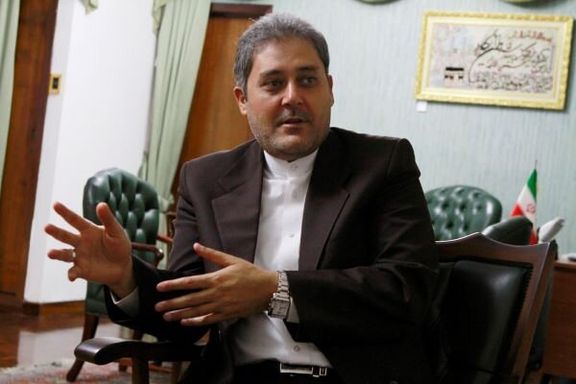
Uruguay’s Foreign Minister, Luis Almagro, summoned ambassador Soltani on December 10, 2014, to complain about the suitcase and warned the Islamic Republic’s representative that Uruguay would adopt “more severe measures should similar circumstances arise in the future.”
However, Ahmed Sabatgold, the alleged perpetrator, had left the country three days before the ambassador was summoned. Observers characterized his departure as fleeing the country before he could be charged with terrorism-related crimes. Almagro himself has come under question as to whether he honestly pursued Iran’s activities against Israel in Uruguay, due to his history of close relations with Iran. No reports on Sabatgold’s further activities have surfaced since his departure from Uruguay. Typically, it is entirely likely that Ahmad Sabatgold was not his real name.
The Israeli embassy changed locations in the aftermath of the suitcase incident; but on January 8, 2015, a realistic-looking fake bomb was discovered outside the new Israeli embassy building. The embassy was evacuated before Uruguayan police discovered that the device did not contain explosives. The Uruguayan police assumed the Islamic Republic of Iran was responsible, and that it was a repeat of what had occurred on November 24, 2014. No arrests were ever made in this case.
On June 17, 2015, another fake bomb was discovered outside the Israeli embassy. An embassy employee was arrested soon afterward but quickly released due to lack of evidence.
In October 2022, Argentine politician Elisa Carrio, recalling the 2015 Israeli embassy incidents along with the 1994 attack on the AMIA Jewish cultural center, stated that the "Iranian penetration in Latin America is based in Montevideo." Alberto Nisman, the Argentinian prosecutor who had investigated the AMIA attack, had repeatedly requested information from Uruguay about the activities of Iranian officials in the country. He was mysteriously murdered in July 2013.
Also, the same October, Uruguayan Senator Graciela Bianchi published documents linking suspected Iranian terrorists to properties in Montevideo.
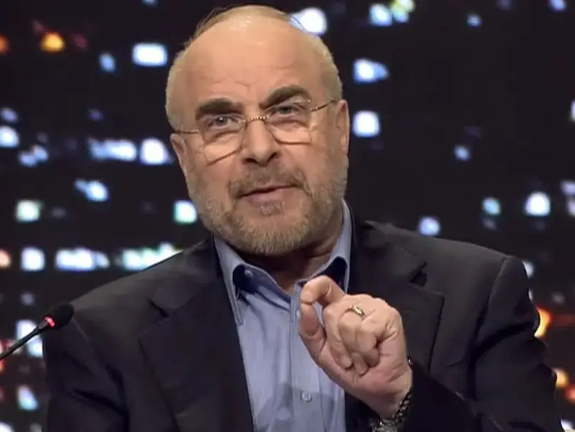
Iranian Parliament Speaker Mohammad Bagher Ghalibaf announced that all transactions between Iran and Russia are now conducted without the use of US dollars, amid efforts to counter the impacts of US sanctions.
"BRICS has provided us with a very important opportunity. Regarding de-dollarization, all transactions between Iran and Russia are done without dollars. All this is because of the incorrect and wrong methods that America has taken in relation to its unilateralism," Ghalibaf told Russian state-affiliated RT.
Although Iran and Russia are close military and political allies, trade and investment between the two countries is minimal by international standards. The scheme to circumvent the use of the US dollar is to an extent imposed on the two countries, both sanctioned by the United States.
On Thursday, Ghalibaf met with Russian President Vladimir Putin on the sidelines of the 10th Parliamentary Forum of BRICS in St. Petersburg. The discussions focused on strengthening Tehran-Moscow relations and expanding cooperation under the incoming Iranian administration led by president-elect Masoud Pezeshkian.
On July 6, Governor of Iran's Central Bank (CBI) Mohammadreza Farzin announced that Tehran and Moscow have interconnected their local payment systems to bolster financial and economic ties and counter the impacts of US sanctions.
In March 2023, Sergey Katyrin, President of the Russian Chamber of Commerce and Industry, reported a 20 percent increase in trade between Russia and Iran in 2022, reaching $4.8 billion. However, by global standards, the trade volume remains relatively insignificant.

Iran's newly elected president is likely an attempt to be a 'charm offensive' in anticipation of a possible second Trump presidency, a former US special envoy told the 'Eye for Iran' podcast.
Ellie Cohanim, a former Deputy Special Envoy to Monitor and Combat Anti-Semitism during the Donald Trump administration, was urging the public not to be fooled by an image campaign touting Iran's newly elected president as a reformer or a game changer .
She accused Tehran of promoting Masoud Pezeshkian in a ploy to turn up the 'charm' to try and manipulate the West - and Donald Trump.
Pezeshkian won Iran's run-off presidential election on July 6, besting hardliner Saeed Jalili. The whole election process triggered by the sudden death of President Ebrahim Raisi, was a process tightly controlled by the core of the regime that hand-picked candidates.
"I understand that in Iran, they are already talking about and preparing in some ways for a Trump presidency." said Cohanim on 'Eye for Iran.'
"I don't think it would have any effect whatsoever. I don't think that Islamic Republic charm offensive is going to sway president Donald Trump."
But just why has that image campaign worked when Pezeshkian refers to himself as a "reformist principlist" who is devoted to Iran's Supreme Leader? Why then has Western media largely propagated him as the hope Iranians need?
Cohanim points to the the Iranian influence network that is operating at the heart of the US government, citing an Iran International investigation. The investigation by Iran International's Bozorgmehr Sharafedin uncovered Iran experts who have worked closely with Robert Malley, as members of an influence network formed and guided by Tehran.
You can watch the entire episode on Iran's International's YouTube Page or listen to it on Spotify, Apple or Amazon.
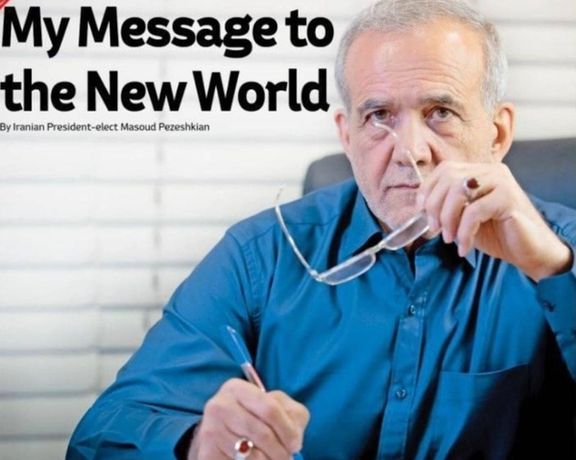
Iran’s president-elect set out his government’s foreign policy in an open letter to the world Friday, praising the eastern powers and attacking the west, only a day after NATO concluded its summit with unequivocal criticism of China, Russia and Iran.
Masoud Pezeshkian’s letter, published in English in the Iranian state-run daily Tehran Times, is yet another sign of Iran’s firm embracing of Russia and China, despite the president-elect’s claim that his government would be committed to pursue “constructive engagement” with all the world’s countries but Israel.
“China and Russia have consistently stood by us during challenging times,” Pezeshkian wrote in his piece titled A Message to the New World. “We look forward to collaborating more extensively with Beijing as we advance towards a new global order… and my administration will remain committed to expanding and enhancing our cooperation [with Russia].”
Iran has been tilting eastward for many years now, having moved on from its original mantra of “Neither East Nor West,” put forward by the Islamic Republic’s first Supreme Leader, Ruhollah Khomeini, right after the Revolution in 1979. The eastward tilt reached an unprecedented pace when Iran began arming Russia with kamikaze drones that have since been used to hit targets in Ukraine.
In contrast to his expression of gratitude to Russia and China, Pezeshkian’s letter shows little warmth towards the west. He blames the United States and Europe for inflicting “hundreds of billions of dollars in damage” to Iran’s economy, and “untold suffering, death and destruction on the Iranian people,” mainly through sanctions that have been tightening steadily, ever since the Trump administration withdrew from the 2015 nuclear deal.
“The US and its Western allies, not only missed a historic opportunity to reduce and manage tensions in the region and the world,but also seriously undermined the Non-Proliferation Treaty (NPT) by showing that the costs of adhering to the tenets of the non-proliferation regime could outweigh the benefits it may offer,” Pezeshkian writes, accusing the western powers of “abusing” the NPT and “fabricating” a crisis over Iran’s nuclear activity.
For more than two decades now, Iranian administrations have been claiming that the country’s nuclear program is “purely civilian.” Expert opinion, however, including that of the UN nuclear watchdog (IAEA), is unanimous that Iran’s highly-enriched uranium cannot be explained in the absence of a weapons program. The IAEA has been pushing Iran for years to gain more extensive access to its sites, but Iran has not only denied this request, but has limited IAEA inspection in retaliation for the US withdrawal of the nuclear deal.
It is unclear if the ‘moderate’ Pezeshkian would hold enough sway to attempt a de-escalation of the nuclear crisis –or a revival of the deal, which he has promised Iranian voters to pursue. Judging by his tone in the Message to the New World, Iran’s relationship with the west is as likely to improve as it is to escalate.
“I look forward to engaging in constructive dialogue with European countries,” Iran’s president-elect says, following with a warning line that the Europeans “should realize” that Iranians’ rights and dignity “can no longer be overlooked”. But the harshest message is expectedly reserved for the US. “The United States also needs to recognize the reality and understand, once and for all, that Iran does not—and will not—respond to pressure.”
Pezeshkian’s message “to the new world” follows the letter he published in Arabic Wednesday, where he addressed Iran’s neighbors, calling for cooperation and a united front against the “monopoly of certain forces over world decision.” The regional charm offensive is repeated in the president-elect’s second letter.
“Under my administration, we will prioritize strengthening relations with our neighbors. We will champion the establishment of a strong region rather than one where a single country pursues hegemony and dominance over the others,” Pezeshkian says. “I firmly believe that neighboring and brotherly nations should not waste their valuable resources on erosive competitions, arms races, or the unwarranted containment of each other.”
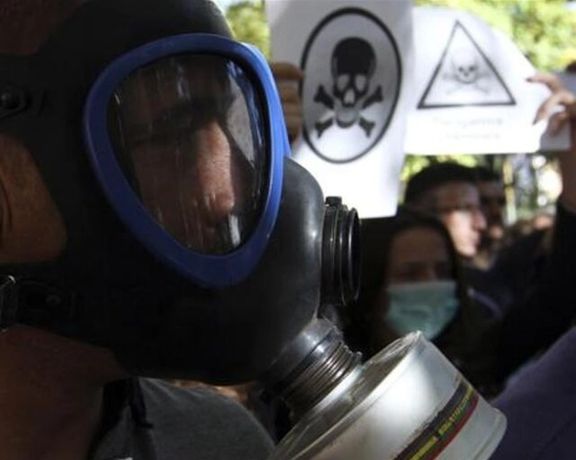
The United States on Friday sanctioned an Iranian company over its alleged contribution to Iran's efforts to develop chemical weapons, vowing to block any such attempts in the future.
In late May, the US ambassador to the Organization for the Prohibition of Chemical Weapons (OPCW) accused Iran of "maintaining a chemical weapons program that includes incapacitating agents for offensive purposes."
However, this is the first time the Biden administration is imposing sanctions against the Islamic Republic's chemical weapons program.
"The Department of State is today imposing sanctions on Hakiman Shargh Research Company for its involvement in Iran’s chemical weapons research and development," the State Department said in a Friday press release.
It said the sanctions are being imposed under the Executive Order 13382, which targets proliferators of weapons of mass destruction and their supporters.
The State Department accused the Isfahan-based company of "engaging or attempting to engage in activities or transactions that materially contribute to the proliferation of weapons of mass destruction by Iran."
The Biden administration also vowed to continue to counter "any efforts by the Iranian regime to develop chemical weapons, including those that may be used by its proxies and partners to support Iran’s destabilizing agenda of inciting and prolonging conflict around the world."
British news website Tortoise reported in May that Iran is believed to be developing chemical weapons, decades after publicly giving them up.
"While the world has been focused on Tehran’s nuclear program, reports from inside Iran and statements from the US government point to a growing industry of pharmaceutical-based weapons ... which are based on substances such as fentanyl... and are aimed at rendering targets unconscious," the report said.
"Leaks from regime-backed universities in Iran appear to show that fentanyl and other central nervous system-acting substances are being developed into aerosolized forms for use on civilians in riot control situations," it added.
Since 2018, the State Department said Friday, the US has assessed Iran as being in noncompliance with the CWC for its "failure to fully declare its chemical weapons-related activities and facilities."
In the midst of Iran's 2022 antigovernment protests, the reported use of a “green gas” against protesters in the Kurdish cities of Javanrud and Piranshahr raised serious concerns among Iranians.
Two videos were posted on social media that showed thick green smoke wafting through the streets in Javanrud, a city of around 50,000 in the western province of Kermanshah, amid heavy clashes between stone-throwing protesters and security forces shooting at them. Reports also emerged on the same day of the use of a similar green gas in Piranshahr in West Azarbaijan Province.
The use of an unidentified gas that causes skin irritation, nausea and other symptoms has conjured up memories of Saddam Hussein’s chemical attack on the Kurdish border city of Sardasht, also in West Azarbaijan during Iran-Iraq War (1980-1988) in the minds of many, particularly people in Iran's Kurdish areas.
Saddam’s chemical attack during which mustard gas was used killed at least 130 people and injured 8,000 of the 12,000 inhabitants of the city in 1983. Many victims still struggle with respiratory and other health issues.
Some chemists and physicians have identified the green gas used in Javanrud and Piranshahr as hexachloroethane, others say it is adamsite (DM), a chemical used as a riot control agent.
Also in 2023, several schoolgirls were poisoned in what some activists called a “revenge” for the role young women played in the 2022 protests against the mandatory hijab.
The scale of the intentional poisoning of female students -- which started in the religious city of Qom and spread further throughout the country and reached schools in small towns and villages -- turned it into a national crisis and even sparked international reactions.
The patterns of the school attacks were similar to chemical attacks committed by radical Islamists in Chechnya and the Taliban in Afghanistan. However, the Islamic Republic downplayed the attacks and denied any foul play, without making any arrests.